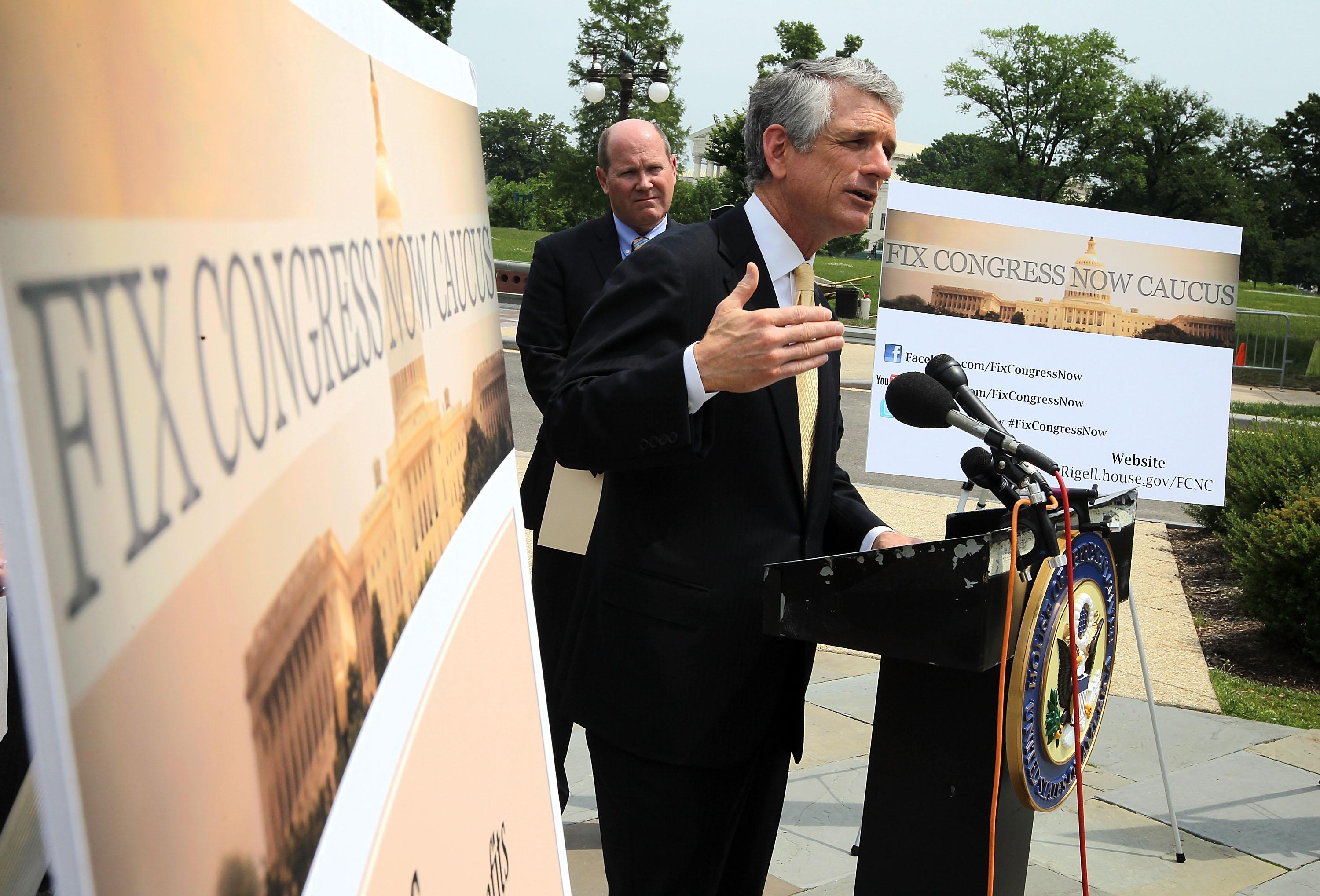I’ve been tracking coverage from around the country as members of Congress return home and talk about sequestration. Buzzfeed’s Andrew Kaczynski does a nice job rounding up the front pages from Alaska, Virginia, Utah, etc and etc, all of them analyzing what Washington is about to inflict upon their states. (This coverage, in general, is much more useful than the “who’s up who’s down” offal that you get in D.C.)
The papers’ interviews with members of Congress are just as enlightening, for different reasons. Indiana Rep. Larry Bucshon, who represents a once-swingy seat shored up in redistricting, says “the two percent of the federal budget that’s going to be cut by this should not have a dramatic effect on Hoosiers.” Mississippi Rep. Gregg Harper, from the Jackson area, just blames the cuts on the president and says “the solution is to raise taxes, it’s just not going to happen.”
And then there’s Virginia Rep. Scott Rigell. A former car dealer, a man who defeated a Tea Party primary challenger in 2010 and took one of the state’s defense industry-heavy Tidewater districts, Rigell is running around warning of falling skies. “This is not a theoretical problem like it is up in Washington. This is reality,” he tells a Norfolk, Va., television station. “This is not a tornado that hits in the middle of the night and you’re totally disoriented,” he tells the Washington Examiner. “You’re tracking it and watching it come up.” He tells the Wall Street Journal that he’s actually open to closing tax loopholes for new revenue—GOP dogma is that loopholes can only be closed if taxes are cuts somewhere else.
Is he the first representative of a new wave of GOP realism? Well. Rigell represents one of the last districts in America that voted for Obama over Romney (narrowly, 50.1-48.6.) He was the only Virginia congressman of either party who faced a real challenge last year.
I enjoy the new, #slatepitchy argument that gerrymandering is overrated as an issue, and that it doesn’t influence whether members moderate their votes or not, but sequestration’s putting that to a test.
Correction, February 22, 2013: This post originally misspelled Rep. Gregg Harper’s first name.
